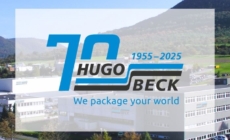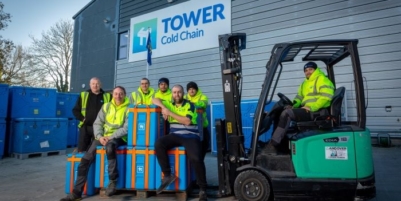-
Nutrivend selects Forterro’s Orderwise to support online expansion and streamline operations - April 11, 2025
-
ARROWXL LAUNCHES AMBITIOUS ZERO WASTE ROADMAP - April 8, 2025
-
THE BCMPA’S NEW CAMPAIGN DRIVES OUTSOURCING SUCCESS IN Q1 - April 7, 2025
-
BLACKOUT TECHNOLOGIES TARGETS TELEMATICS-INTEGRATED MOBILE DEVICE BLOCKING TO COMBAT SMARTPHONE DISTRACTION - April 1, 2025
-
OpenADR Alliance announces first OpenADR 3.0 certified products with EVoke Systems, E.ON Energy and Universal Devices - March 25, 2025
-
Growing fulfilment and contract packer appoints new Managing Director - March 25, 2025
-
When is it time to invest in a WMS? Understanding the key trigger points - March 25, 2025
-
eCapital helps Vantage Recruitment on its journey to financial success - March 24, 2025
-
Hugo Beck Celebrates 70 Years of Packaging Innovation with Open House Events - March 20, 2025
-
PROLOG FULFILMENT SUPPORTS LUNA DAILY’S COMMITMENT TO BETTER BODY CARE FOR ALL WOMEN - March 19, 2025
Passive or Active? Supply chain leaders compare key pharmaceutical cold chain technologies in latest white paper
The vital role that temperature-controlled packaging plays in transporting pharmaceuticals around the world has been highlighted in a new white paper from Tower Cold Chain, with the aim of helping stakeholders find the right solution for their needs.
Compounded by the demands of the COVID-19 pandemic, the white paper provides practical advice on the various options available, with insight delivered by seven leading industry experts from across the supply chain. These include senior decision makers from Johnson & Johnson, DHL and LOT Polish Airlines, who deliver an unbiased guide that is ideal for specifiers in pharmaceuticals, 3PL and air freight looking to make informed choices.
Free to download from the Tower website, the white paper – titled ‘Passive v Active in a globally disrupted age’ – collates the key findings of a 90-minute webinar organised by Tower in late 2021. Amongst the topics covered are the rapid changes affecting the industry; the new challenges that are arising in delivering vaccines to remote areas; and the considerations that must be made in selecting the optimum container type for the task.
At the heart of the publication is an assessment of the relative merits of Active, Passive and Hybrid temperature-controlled packaging solutions with detailed insight on their use across the global pharmaceutical supply chain.
In an unbiased review of the technologies the white paper identifies a place for all types of temperature-controlled solutions within the market.
“In some circumstances, active methods are ideal. In others, passive is the only sensible choice to de-risk the shipment,” explains Kevin Doran, Global Head of Supply Chain at Tower Cold Chain.
“When it comes to patient care and the effective delivery of critical pharmaceuticals there’s no benefit in being partisan. We felt it was vital that decision makers can get a balanced view, which is why this white paper brings together a wide range of voices to survey the whole landscape and identify the scenarios for the best use of each technology.
“We’re grateful to all of the experts who gave their time and provide such a rich source of insight and information – and we look forward to sharing it with others.”
The white paper can be downloaded here.

































